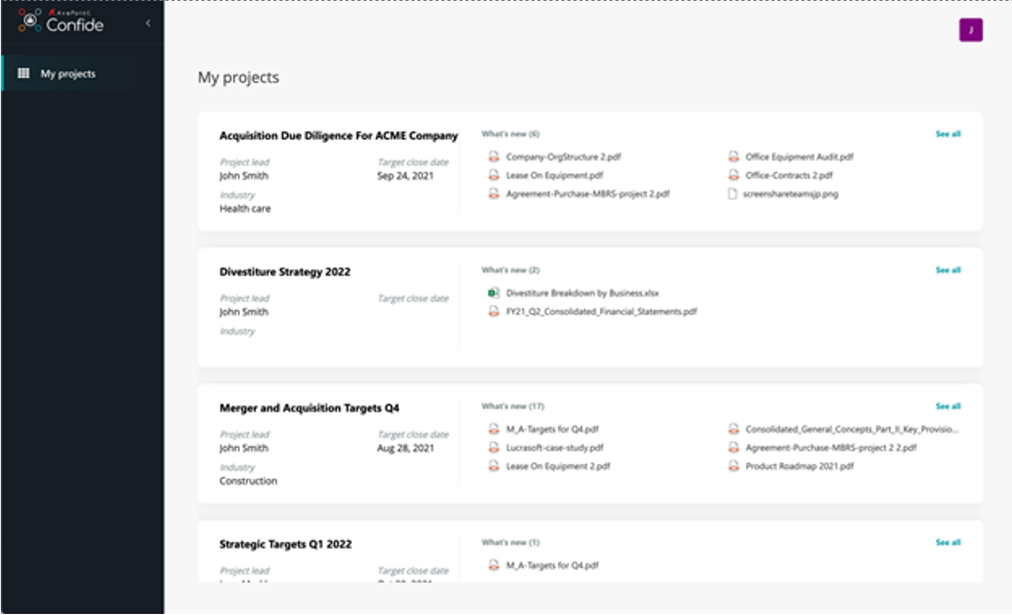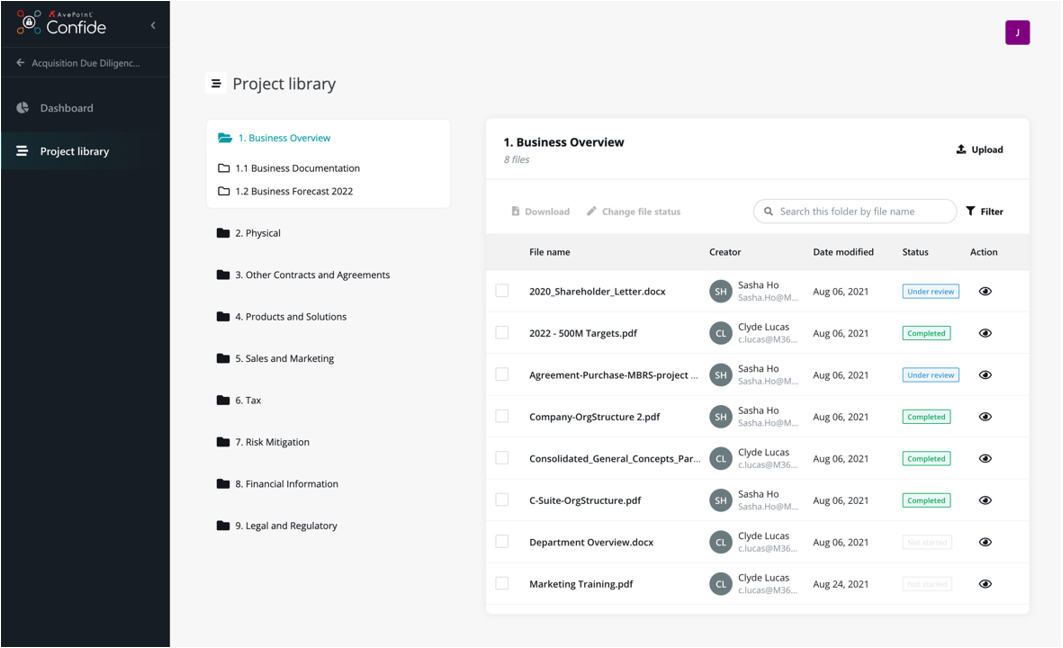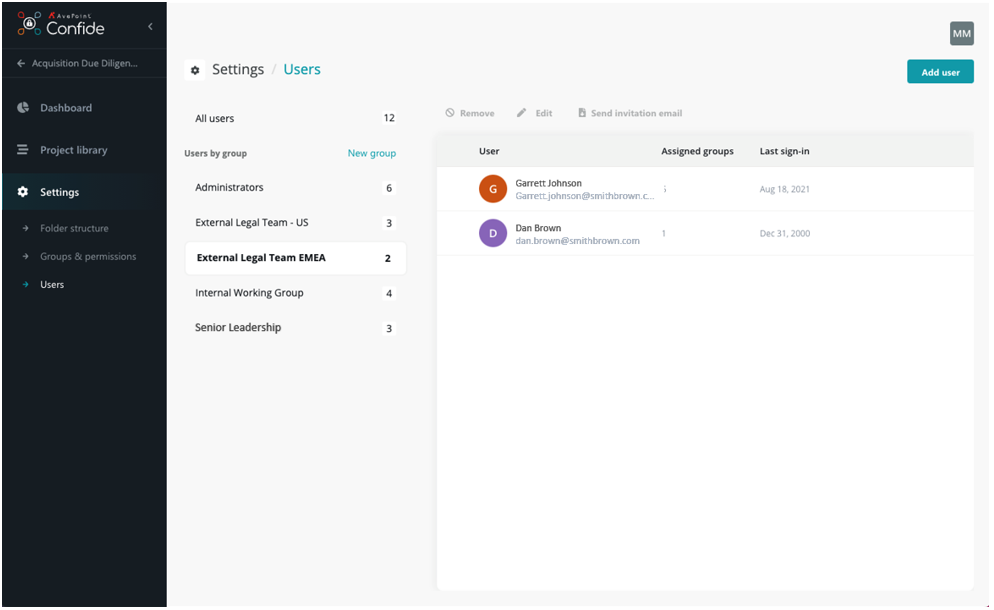The way that organizations share data has evolved over time amidst technological advancements and profound shifts in the way we work. Whereas previously an employee might have walked down the hall to the board room and handed an executive a folder containing sensitive documents, today that data is almost certainly being exchanged online. Whether sharing internally amongst colleagues or externally with collaborators from other organizations, data security is paramount.
However, there are certain situations where the data being exchanged is so incredibly sensitive that any security breach—inadvertent or otherwise—could result in significant financial and reputational consequences. That’s where a virtual data room (or VDR) comes into play. Read on for a few high stakes use cases where VDRs are commonly employed, and for an introduction to AvePoint’s own virtual data room check out the video below:
1. Mergers, Acquisitions, and Divestitures
Due diligence is the foundation of any business-to-business transaction. The pandemic hastened the shift from in-person to online deal-making. A virtual deal room provides a safe space where parties can vet each other’s business and financial portfolios.
With M&A activity skyrocketing over the past few years, many executives may find themselves juggling multiple deals, increased compliance requirements, and shorter timelines. In addition to providing a safe space for your internal and external teams to compile and collaborate on documents for regulatory review, modern virtual data room providers also drive efficiency by allowing you to monitor key metrics and activities across multiple projects.

2. Capital Raising
Virtual data rooms are ideal for organizations looking to raise capital. When courting investors, companies must share sensitive financial and business records with multiple external parties over the course of weeks or months. VDRs make it easy for users to sort through a large volume of data and find the specific file(s) they need. Plus, some solutions offer built-in insights that organizations can use to gauge investors’ interest and engagement.
3. Legal
Complex transactions and litigation often require privileged information to be shared between general counsel, external law firms, and third parties. Fast-moving legal matters require 24/7 access to up-to-the-minute documents and filings. Virtual data rooms lock down that data in the online version of a steel-enforced safe room with only one way in and out.
Think about a large, complex litigation like a class-action lawsuit. A VDR would allow you to manage the entire project in one place, using granular folder- and file-level permissions to ensure that each plaintiff can only view their own personal documents. Additionally, as people got added to the class action suit, they could quickly be added to the data room.

4. Audits & Compliance
Whether you’re complying with a routine audit or responding to a regulatory investigation, a virtual data room can be used to compile relevant financial details and company reports. Better yet, you can assign permissions to external auditors and other parties as needed.
As you work to compile all the documentation and reporting required for an audit or compliance review, a VDR can help contain communications in a secure place. Additionally, built-in metrics allow you to monitor progress toward specific deadlines or deliverables.
5. Real Estate
Commercial real estate transactions are complex. Buyers, lenders, and financial institutions need quick, easy access to financials, blueprints, and information on the property itself. Traditional tools like email or online file shares may be limited by file size restrictions, whereas VDRs allow multiple parties to view and collaborate on these large files.
Additionally, as with any transaction, you’ll likely share information with a broader group of people in the beginning and then narrow it down as you go. The ability to revise and revoke permissions is critical as the project progresses.

6. Intellectual Property
Industries such as Biotech, Pharmaceutical, Mining, and Energy (just to name a few) use virtual data rooms to streamline and secure the sharing of mission-critical data such as intellectual property, clinical trial data, environmental audits, and project bids.
Siloed. Streamlined. Secured.
At the end of the day, virtual data rooms are the most secure workspace for highly sensitive projects, regardless of industry. Easily scalable, these digital saferooms not only protect confidential data, but make it easier to collaborate with guest users who might traditionally have been limited by firewalls or IT restrictions.
Learn more about VDRs and how AvePoint’s modern, intelligent virtual data room, Confide, empowers business users to control confidential collaboration.




